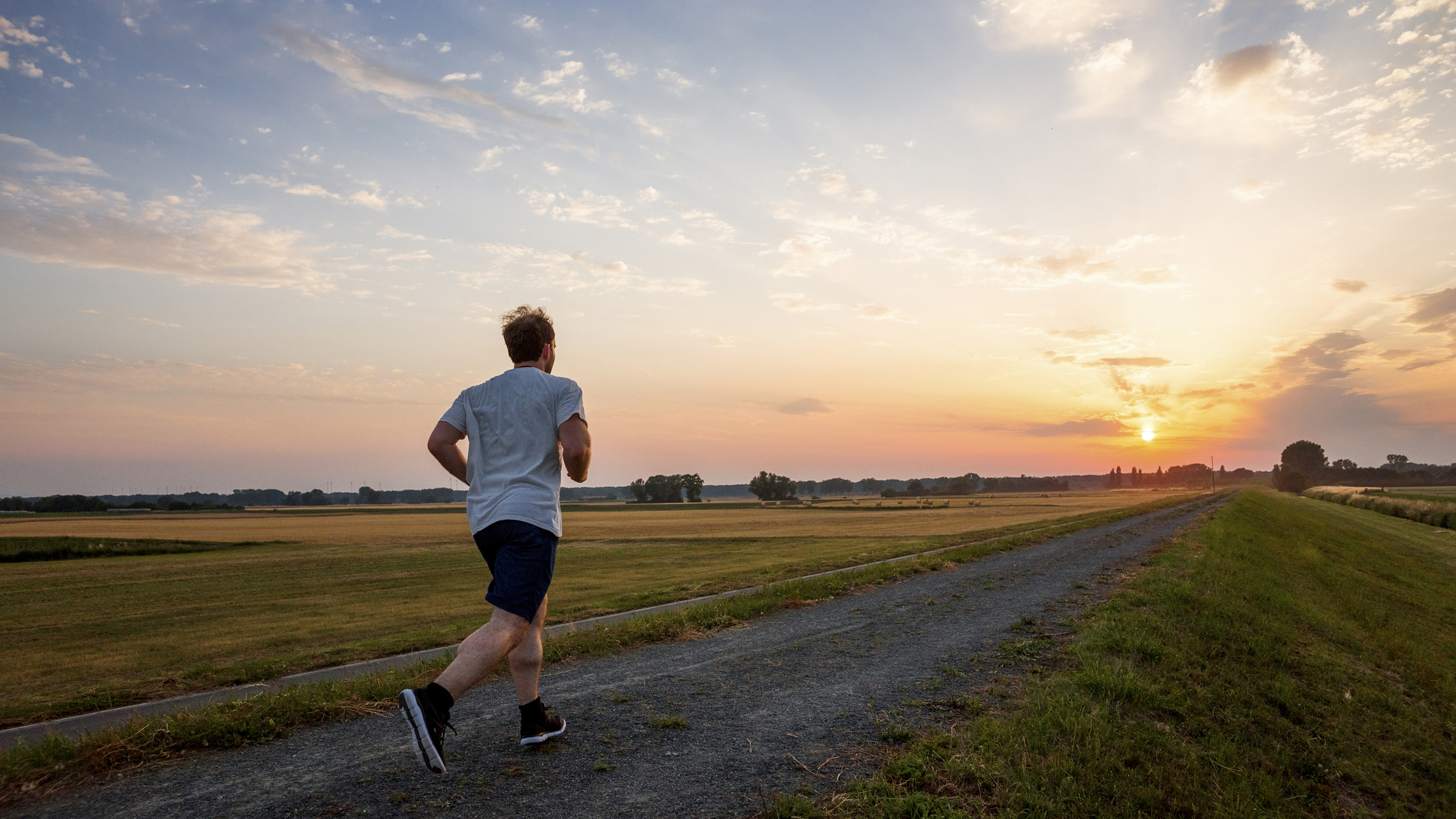
I'm the sort of person who tracks every single element of their workouts. In the gym you'll find me scribbling down my sets, reps and weights, and it's been more than a decade since I went on a run without my fitness tracker.
That all changed over the festive period, when I decided to try running without monitoring my pace or distance. I didn't even track the length of time I spent on my jog. I simply slipped on my running shoes, opened the door and ran.
Not tracking my run had a number of unexpected benefits. The biggest surprise was that I actually enjoyed my run more than usual. Here are three other things I learned about myself after doing the experiment, along with the reasons why I'll be doing it again.
1. Not monitoring my performance got rid of my pre-workout anxiety
I'm an incredibly competitive person. I usually feel a rush of anxiety before starting a timed run or CrossFit-style workout, because I'm desperate to improve on my previous attempts.
Running without a fitness tracker removed these pre-exercise butterflies; there's no risk of underperforming when you're not recording your performance. Instead of feeling nervous, I felt pleasantly calm before my run.
2. I run slower without my fitness tracker, which is a good thing
I've set myself the goal of becoming a better runner in 2024. When I've previously tried to improve my running efforts I've focused on running as quickly as I can, but a successful running plan should also feature a high proportion of long, slow runs to develop your aerobic capacity (the maximum amount of oxygen your body can use during exercise).
"Aerobic capacity is the basis of all your training and it has to be developed properly," fitness and performance coach Thibo David tells me. "It’s an incredible tool that people overlook because it's boring. You have to do a long, very slow run or get on a bike at a very slow pace [to improve it]."
I'm usually tempted to push my pace and post a semi-impressive time on Strava. But without anything tracking my progress, I was able to slow down and stick to a "conversational pace"—a speed at which you can hold a conversation while running, which David says is best for building a strong aerobic base.
3. I'm more mindful when I'm not checking my pace
I recently tried meditation for the first time and it didn't go well. As soon as I was told to sit quietly and relax, my mind flooded with to-do lists and dinner plans.
I found my tracker-free run offered many of the benefits I'd been told meditation would bring; calmness, reduced stress and a fantastic night's sleep.
The steady rhythm of the run and the regularity of my breathing put me in a trance-like state, shutting out worries that had been playing on my mind. I was also able to appreciate my scenic, coastal surroundings, as I wasn't focused on the numbers that are usually displayed on my wrist. I even stopped to take a quick picture (featured below) of a particularly lovely view.

Would I do this again?
If you want to lead a more active lifestyle, you should find an activity you enjoy and make that the basis of your exercise plans. I loved running without a fitness tracker, so I'd be a fool not to do it again.
I'd also encourage both newcomers and seasoned runners to try running without a fitness tracker, as it allowed me to reconnect with the sport and enjoy it properly.
That doesn't mean all my runs from here on in are going to be done without a tracker. I'll probably do a long, untracked run once a week, but I still see the value in monitoring my exercise. My fitness goals center around improving my performance, and looking at recorded data can help me structure my training accordingly.
If you're looking to up your weekly mileage, take a look at our roundup of the best running shoes for men and best running shoes for women.







